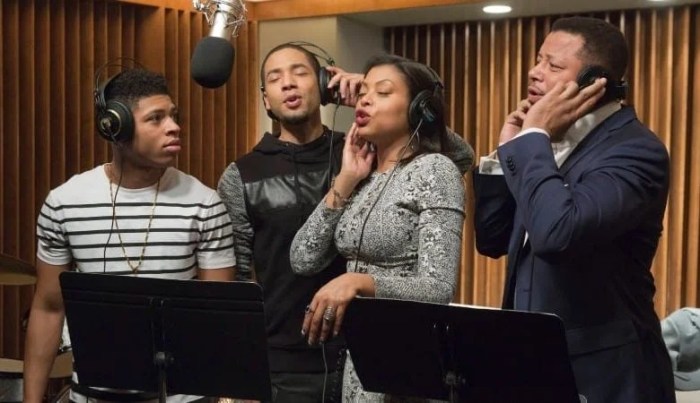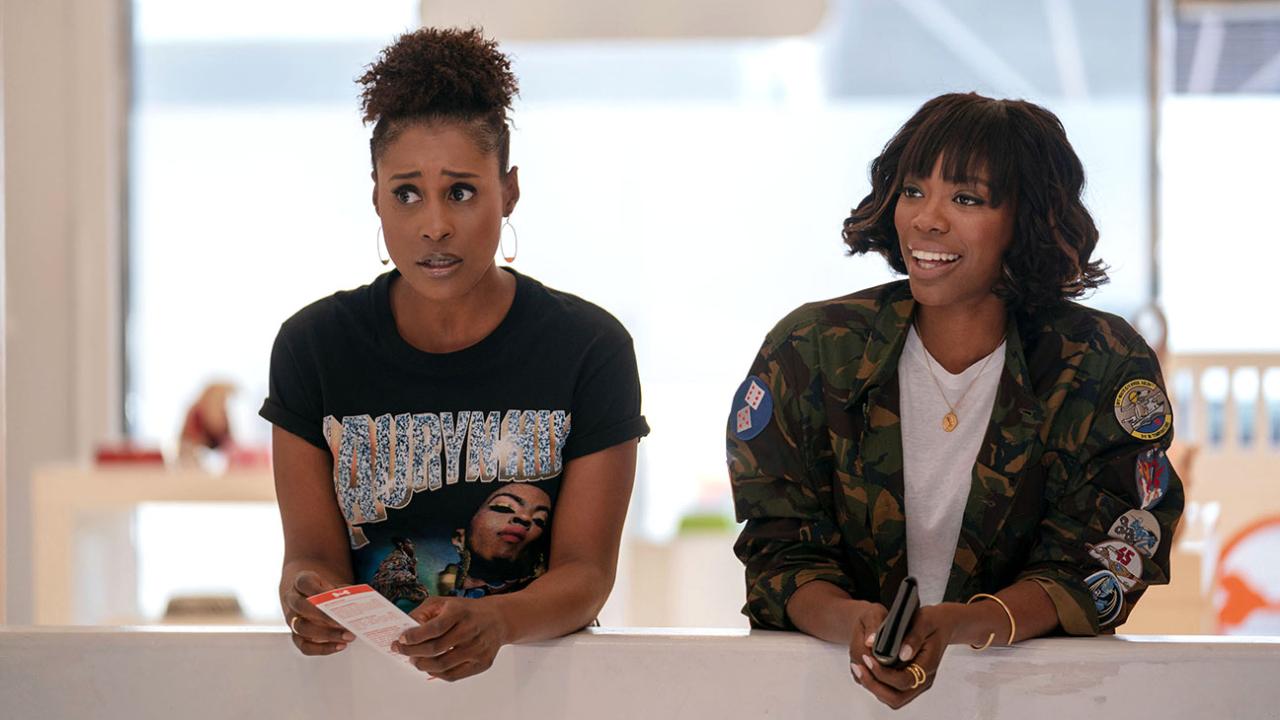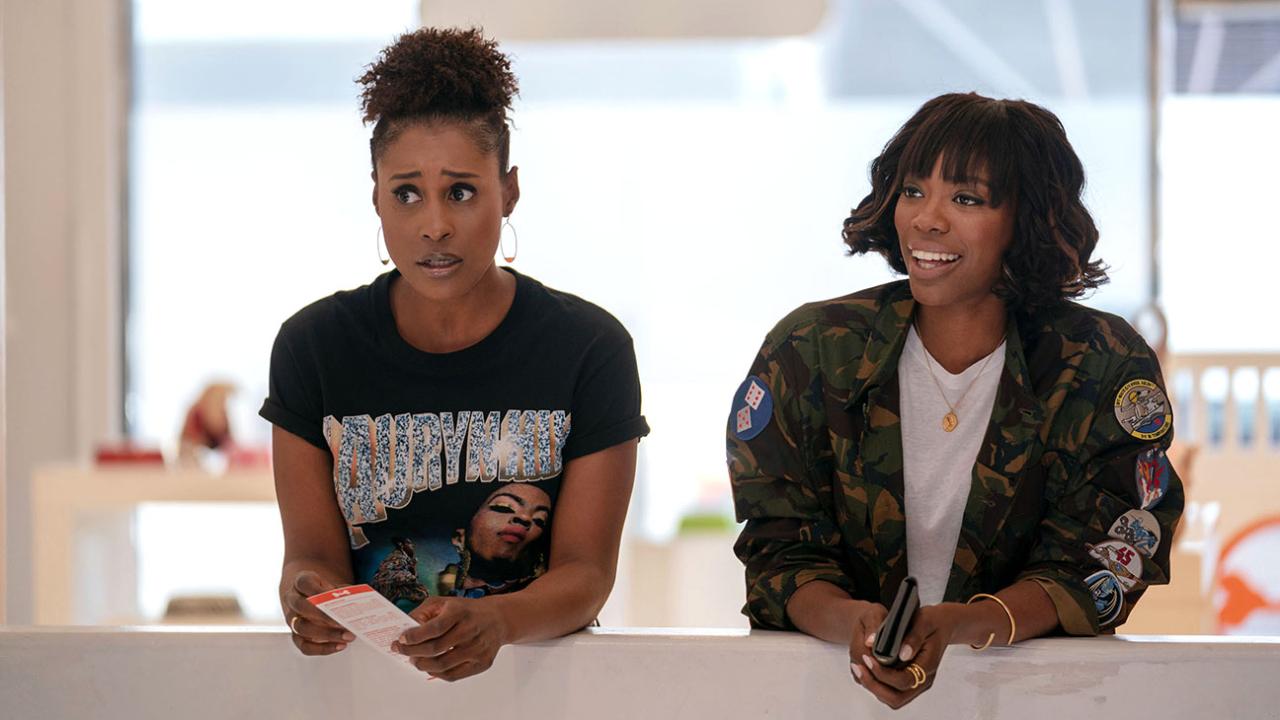Tvs best music supervision in 10 shows – TV’s best music supervision in 10 shows dives deep into the captivating world of how music elevates storytelling. From subtle cues to powerful scores, we’ll explore how music enhances narratives, characters, and atmospheres in these exemplary shows. This journey delves into the techniques, choices, and impact of music supervision, revealing how it shapes viewer experience.
We’ll analyze 10 shows renowned for their musical prowess, examining how specific musical choices underscore plot points, character arcs, and emotional beats. The analysis will encompass a wide range of musical styles, examining how different approaches to music selection impact the overall narrative and viewer response. We’ll also explore the licensing, original compositions, and selection processes behind the music.
Impact of Music on the Narrative
Music, often overlooked, plays a pivotal role in shaping the viewing experience of television shows. It’s not just background noise; it’s a crucial element that enhances the emotional impact, guides the viewer’s interpretation of characters and plot points, and sets the overall tone and atmosphere of each episode. By meticulously crafting the musical score, composers and music supervisors contribute significantly to the success of a show, making it more engaging and memorable for the audience.Music’s power lies in its ability to evoke specific emotions in the viewer.
It can amplify moments of joy, heighten suspense, or add depth to moments of reflection. This subtle yet profound impact influences how we perceive characters and their actions, creating a more profound connection with the story unfolding on screen. The strategic use of music in these 10 shows underscores its ability to elevate the narrative beyond simple storytelling.
TV’s best music supervision in 10 shows is seriously impressive, showcasing how soundtracks can elevate a series. Recent news, like the Rootssantigold, Neil Young, Franz Nicolay, Ungdomskulen, and Extra Golden happenings, demonstrates the power of music in shaping narratives. Ultimately, these different musical choices in TV shows show a deep understanding of how to connect with viewers through audio.
Emotional Enhancement of the Viewing Experience
Music profoundly affects the emotional experience of the viewer. The strategic use of specific musical styles and instruments can evoke a wide range of emotions, from the exhilaration of a triumphant victory to the profound sadness of a tragic loss. For instance, a soaring orchestral piece during a climactic scene can intensify the viewer’s excitement and emotional investment, while a melancholic piano piece can mirror the character’s inner turmoil.
Influence on Character Development and Plot Progression
Music acts as a powerful tool for character development. A recurring theme or motif associated with a particular character can subtly reveal their personality traits, motivations, and inner conflicts. For example, a specific type of music might consistently play when a character is feeling conflicted or vulnerable. This musical cue can subtly foreshadow plot developments or reveal the character’s internal struggles.
Furthermore, musical transitions and changes can signal shifts in the plot, such as the introduction of a new conflict or a turning point in the narrative.
Enhancement of Atmosphere and Tone
The musical choices significantly shape the overall atmosphere and tone of each show. A whimsical and upbeat score can create a lighthearted and joyful atmosphere, while a suspenseful and dramatic score can build tension and anticipation. The use of specific instruments and musical styles can evoke a particular time period or cultural setting. The interplay between the music and visual elements, such as setting and character interactions, significantly contributes to the overall atmosphere and tone of the show.
Talking about TV’s best music supervision in 10 shows is a blast! It’s amazing how music can elevate a scene, and these shows really nail it. Speaking of nailing it, have you ever struggled with those awkward bangs or fringe? If so, checking out Hide Bad Bangs or Fringe might be your solution! Ultimately, these top 10 shows showcase a masterful understanding of how music complements storytelling, just like great hairstyling enhances a look.
Example of a Powerful Musical Scene
“In ‘The Crown,’ the musical score during Queen Elizabeth’s coronation ceremony was particularly effective. The majestic and regal music, featuring a blend of orchestral grandeur and choir, perfectly mirrored the solemnity and importance of the occasion. The music, combined with the visual spectacle of the ceremony, evoked a sense of awe and reverence in the viewer. The crescendo of the music as the Queen was crowned, coupled with the majestic visuals, intensified the emotional impact of the scene, making it truly memorable. The use of traditional and regal instruments like the trumpet and organ underscored the historical and cultural significance of the event.”
TV’s best music supervision in 10 shows is seriously impressive, and it’s cool to see how the right song choices can elevate a scene. For a taste of incredible musicianship, check out Julien Baker’s NPR Tiny Desk Concert; watch Julien Baker play NPR’s Tiny Desk Concert – it’s a fantastic example of how well-chosen music can enrich a viewing experience.
Ultimately, the quality of music supervision in these shows really sets the tone and elevates the entire storytelling aspect.
Identifying Trends in Music Supervision

Music supervision in television has evolved dramatically, moving beyond simply providing background music to becoming a crucial storytelling tool. This evolution is driven by a confluence of factors, including technological advancements, changing audience preferences, and the increasing sophistication of television narratives. Understanding these trends is vital for appreciating how music now shapes the viewing experience and enhances the emotional impact of television shows.The use of music in television is no longer solely decorative.
It is carefully curated to evoke specific emotions, set the mood, and contribute to the overall narrative arc. Music supervisors are now deeply involved in the creative process, working closely with showrunners, directors, and actors to ensure that the musical choices resonate with the story and character development.
Emerging Trends in Music Supervision
The landscape of music supervision is dynamic, reflecting broader shifts in the entertainment industry. New technologies allow for more nuanced and targeted musical choices, and audience expectations for sophisticated soundtracks are rising.
- Emphasis on Emotional Resonance: Music supervisors are increasingly focusing on creating emotional connections with viewers. This is achieved by carefully selecting music that mirrors the specific emotional states of characters and plot points. For example, a melancholic piece during a character’s personal crisis or a triumphant anthem during a pivotal victory scene. This deep integration of music into the emotional fabric of the narrative is becoming the norm.
- Integration of Diverse Genres and Styles: Modern shows embrace a wider range of musical genres, styles, and cultural influences. This reflects the diversity of the viewing audience and seeks to create a more inclusive and authentic atmosphere. Shows now frequently incorporate music from underrepresented genres and cultures, fostering a sense of authenticity and global appeal.
- Focus on Authenticity and Cultural Sensitivity: Music choices are now more critically evaluated for their cultural relevance and sensitivity. Shows are avoiding the use of music that might be considered inappropriate or insensitive to specific communities, emphasizing the importance of respectful representation in the soundtrack. For example, a show set in a specific region might use local music and traditional instruments to create an immersive experience and cultural authenticity.
Evolution of Music Supervision in Television, Tvs best music supervision in 10 shows
Music supervision in television has evolved significantly over the years, transitioning from a largely reactive role to a proactive and integral part of the creative process.
- Early Television Era (1950s-1970s): Music in early television was often generic, with a focus on mood-setting rather than narrative integration. Music libraries and pre-existing tracks were frequently utilized, with less emphasis on tailoring the soundtrack to the specific show.
- Rise of the Soundtrack (1980s-1990s): The rise of the film soundtrack industry influenced the approach to music in television. Music supervisors began to focus more on creating a distinct and recognizable sound for each show, though it often still leaned towards genre conventions.
- Modern Era (2000s-Present): Technology, and a more refined understanding of the power of music in storytelling, have enabled far more creative and dynamic use of music in television. Shows now utilize original scores, licensed music, and carefully selected soundtracks to elevate the narrative. Music supervisors are deeply involved in the creative process, collaborating closely with the production team to select music that enhances the emotional impact of the show.
Future Trends in Music Supervision
The future of music supervision in television is poised for further innovation. The combination of evolving technology and sophisticated storytelling techniques will undoubtedly lead to even more dynamic and emotionally resonant music choices.
- Personalized Soundtracks: Future shows may incorporate personalized soundtracks tailored to individual viewer preferences. This will involve advanced data analytics to understand audience reactions to different musical styles and use this data to curate personalized playlists.
- Interactive Music Experiences: Interactivity will become more important, with music playing a role in interactive episodes or allowing viewers to select different musical choices, influencing the narrative in some way. This could be in the form of a web-based system that allows viewers to select songs for certain scenes.
- Artificial Intelligence in Music Selection: AI could play a larger role in music selection, using algorithms to analyze the emotional content of the show and suggest appropriate music choices. This could allow for more nuanced and effective emotional impact, though human oversight and artistic judgement will remain crucial.
Illustrative Examples of Successful Music Supervision

Music supervision is far more than just choosing the right song for a scene; it’s a crucial element in shaping the emotional landscape of a television show. It’s about creating a specific atmosphere, enhancing the narrative, and ultimately, impacting the viewer’s experience. Effective music supervision is often subtle, weaving a tapestry of sound that underscores the drama, humor, or romance without drawing undue attention to itself.
This approach allows the music to become an integral part of the storytelling, enriching the overall impact of the show.Music is not merely background noise in television; it’s a powerful tool for creating and amplifying specific emotions. A well-placed score can evoke joy, sorrow, suspense, or nostalgia, immersing the viewer in the scene and deepening their connection to the characters and plot.
By carefully selecting and crafting musical elements, supervisors can subtly influence the audience’s perception and response to the unfolding narrative.
Impact of Music on Mood and Atmosphere in
Stranger Things*
Stranger Things*
Music is pivotal in establishing the specific mood and atmosphere inStranger Things*. The show deftly uses music to shift the emotional tone of each scene. For instance, during moments of heightened tension, such as encounters with the Demogorgon, the music often builds to a crescendo, intensifying the viewer’s sense of dread and anticipation. Conversely, scenes involving the characters’ childhoods are often accompanied by simpler, nostalgic tracks that evoke a sense of longing and wonder.
This careful juxtaposition of musical styles effectively mirrors the emotional arc of the characters and the overall narrative.
Memorable Moments Created Through Music in
The Crown*
The Crown*
The music inThe Crown* plays a vital role in creating indelible moments. In several episodes, the show uses music to underscore pivotal moments in the lives of the royal family, such as the marriage of Prince Charles and Lady Diana. The soundtrack is carefully chosen to match the formality and solemnity of the occasion, enhancing the grandeur and significance of the event for the viewer.
Moreover, the show’s use of music transcends simply setting a mood; it helps to contextualize historical events, giving them a personal and human dimension.
Evolution of Music in a
Breaking Bad* Scene
Breaking Bad* Scene
Consider the evolution of the music in the scene where Walter White prepares for his final confrontation. In the earlier seasons, the music might have been lighter, reflecting the subtle tension in Walter’s growing criminal activities. As the show progresses, and Walter’s actions become more ruthless and extreme, the music becomes more ominous and intense. The increasing complexity and intensity of the music reflect the escalation of Walter’s descent into darkness, mirroring the characters’ and the audience’s anxieties.
The use of electronic and orchestral elements creates a sense of foreboding and inevitability. This change, evident in the music track selection and instrumentation, is a powerful example of how music evolves to reflect the characters’ emotional state and the overall trajectory of the narrative.
Conclusion: Tvs Best Music Supervision In 10 Shows
In conclusion, TV’s best music supervision in 10 shows demonstrates the profound impact music has on storytelling. We’ve seen how music can enhance character development, heighten emotional impact, and elevate the overall viewing experience. The analysis of these 10 shows reveals emerging trends and highlights the evolving role of music supervision in television, paving the way for future creative applications.
The impact of music on the narrative is undeniable, shaping our emotional connection with the characters and plot. This exploration underscores the essential role of music in television production.


